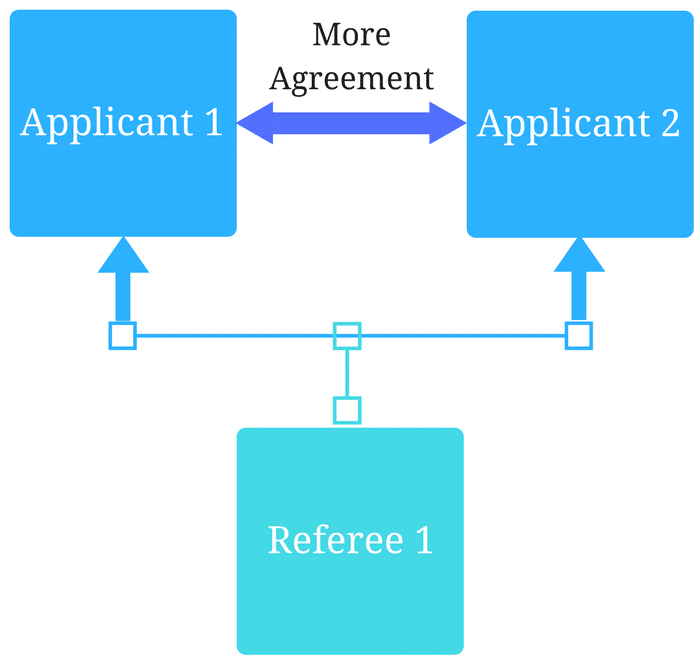Understanding the Casper Test and Its Role in Holistic Admissions

April 22, 2025
Discover how the Casper test supports holistic admissions by assessing applicants’ real-world judgment, empathy, and communication skills.
Most admissions tools measure what applicants know — academic performance, test scores, and technical knowledge.
However, it’s become increasingly evident that real-world success requires skills that aren’t measured through academics alone. That’s where the Casper test comes in.
Casper is a situational judgment test (SJT) designed to uncover something different – how applicants think and respond in real-life situations.
Whether it’s medicine, teaching, or nursing, completing a program and becoming a successful professional involves more than just grades. It also involves durable skills like communication, empathy, and judgment.
Why the Casper test was created: Solving gaps in holistic admissions
In the early 2000s, McMaster University’s medical school faced a familiar challenge: thousands of applicants, but limited ways to assess more than academic strength. Interviews offered valuable insights, but resource constraints meant only a small fraction could be interviewed. Personal statements were used to bridge the gap, but they often lacked authenticity, were time-consuming to review, and did little to predict future success.
The team began exploring how to capture more meaningful insights about applicants. They wanted something low-cost, easy to use, and most importantly, something that actually added value.
What’s behind the Casper test: Years of research and data
Between 2004 and 2010, the Casper development team rigorously explored the science behind situational judgment tests (SJTs), aiming to understand their predictive value and identify ways to improve their design. Their goal was clear: to create a tool that could offer admissions teams insights beyond what GPA and standardized test scores could reveal—without introducing bias.
Backed by peer-reviewed research grants, the team experimented with multiple formats and conducted extensive validation studies to examine how Casper performed alongside traditional academic metrics. The research demonstrated that Casper provided reliable, meaningful data on key non-cognitive competencies—such as empathy, ethics, and professionalism—that are critical for future success in education and practice.
With strong evidence supporting its value, Casper was officially launched at McMaster University in 2015, marking a significant advancement in holistic admissions practices.
Today, Casper is trusted by programs in over 170 countries, helping institutions identify applicants with the personal and professional qualities needed to succeed, not just academically, but in practice.
Casper is used across a wide range of disciplines, including:
- Medicine
- Nursing
- Dentistry
- Pharmacy
- Teacher Education
- Engineering
- Business
Casper’s continued development is driven by research, data, and feedback. The goal is always to make the assessment better, fairer, and more useful – for both applicants and the programs reviewing them.
Today, Casper is supported by an internal research team and outside collaborators who ensure the test stays current, credible, and effective. This focus on continuous improvement means Casper continues to reflect best practices in admissions science.
Discover more about the research behind the Casper test.
How the Casper test works: A unique situational judgment approach
Most situational judgment tests (SJTs) use multiple-choice questions. The Casper test does not.
Instead, it presents realistic, everyday scenarios, asking applicants to respond in their own words. These aren’t academic questions with right or wrong answers. They’re meant to show how someone thinks, reacts, and communicates in complex situations.
When Casper first launched, responses were typed only. Today, applicants can choose to respond by video or in writing, empowering them to craft more natural responses. Some people communicate more clearly when they speak than when they write. Others prefer typing and having a moment to think. By offering both options, Casper helps applicants show up in the way that feels most authentic to them.
While the test format continually evolves based on research and feedback, the goal remains the same: to give programs a deeper, fairer, more holistic understanding of their applicants that goes beyond academic achievements.
Why the Casper test is essential for holistic admissions
Every Casper test response is rated by a human who is trained, tested, and monitored.
Instead of one rater scoring an entire test, each scenario is scored by someone new. This avoids the halo effect – that early impression bias that can creep into interviews or traditional assessments. Raters also come from the same country or region as the applicants they’re scoring, so they understand the context of the scenario.
Rather than scoring results using numbers or percentages, Casper uses quartiles. This shows applicants how they did compared to others applying to the same program, giving admissions teams a snapshot of where someone stands, without ruling them out just because of one metric.
How can applicants prepare for the Casper test?
Applicants can’t study for Casper, but they can prepare. Applicants are encouraged to take the full-length practice test, ideally at the same time and in the same location where they plan to write the real one. This helps identify tech issues, noisy environments, or other distractions.
The Casper test is designed for accessibility:
- No apps or downloads required
- No travel to a test centre, applicants take the test online
- Support is available before, during, and after the test
- Accommodations are arranged in advance
The goal is to create a fair, stress-reduced experience that allows applicants to show who they are – not just what they know.
Why the Casper test matters
Soft skills are indicators of future success and career longevity. Strong academics are important, but they don’t tell the whole story. Admissions teams need to know if an applicant can communicate well, work with others, and handle the complex situations that lie ahead.
By capturing those qualities, Casper helps programs identify applicants who will succeed – not just in school, but in real-world roles where those skills are essential.
Want to learn more?
Check out the full episode of The Holistic Success Show featuring Dr. Kelly Dore, where we explore how the Casper test was created, how it works today, and why it continues to evolve.
Related Articles

How interviews could be misleading your admissions...
Most schools consider the interview an important portion of their admissions process, hence a considerable…
Reference letters in academic admissions: useful o...
Because of the lack of innovation, there are often few opportunities to examine current legacy…
